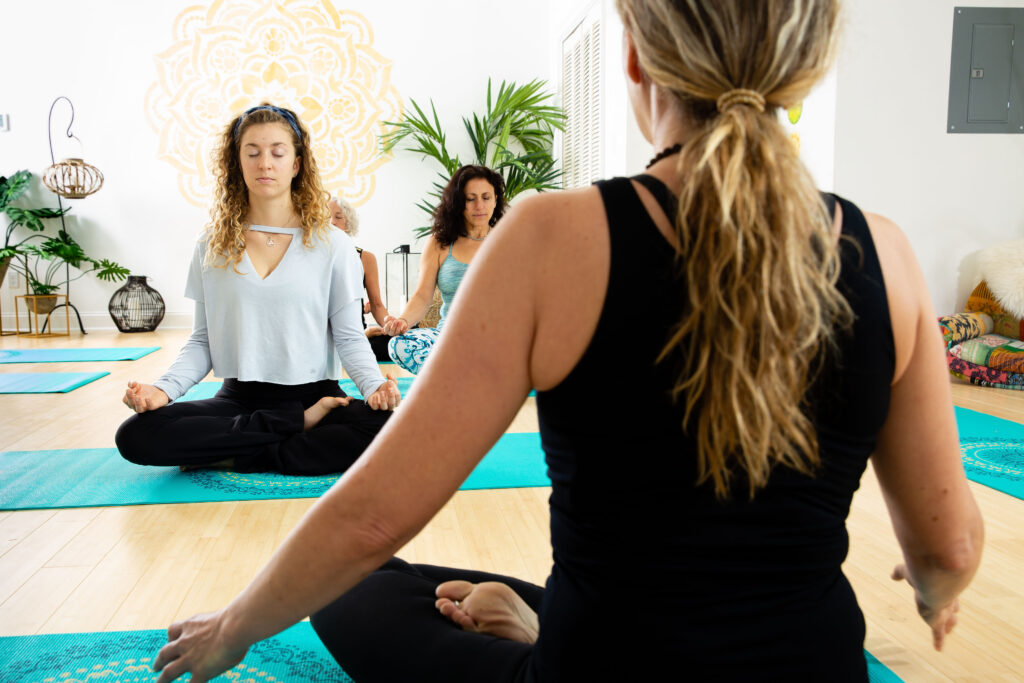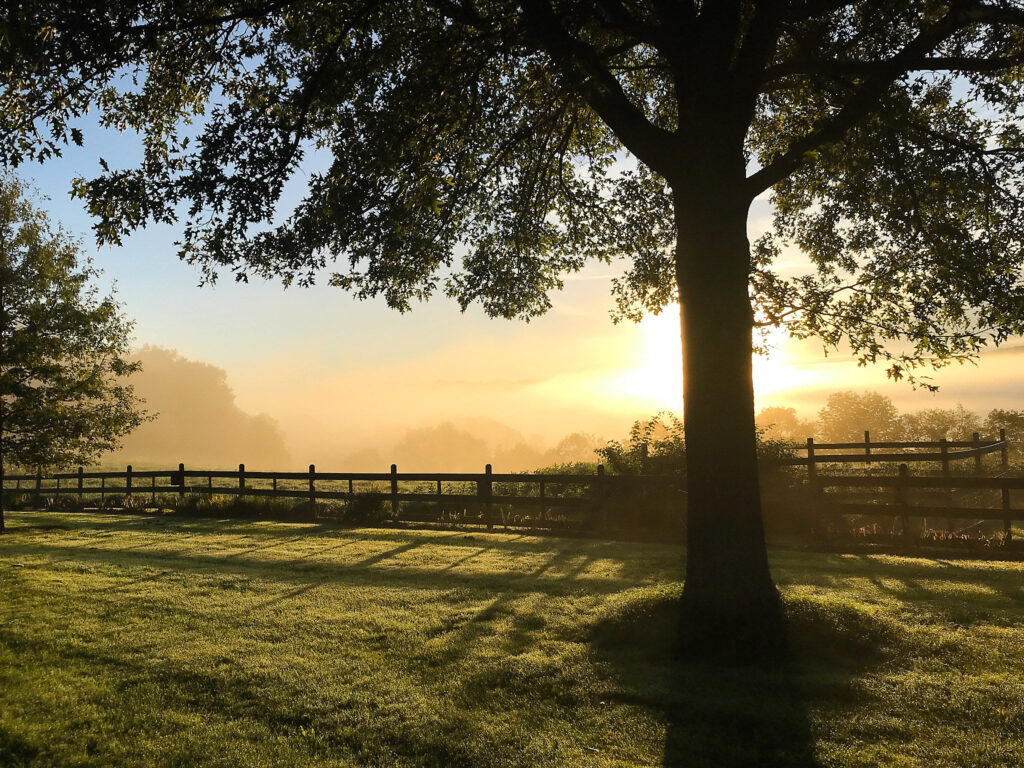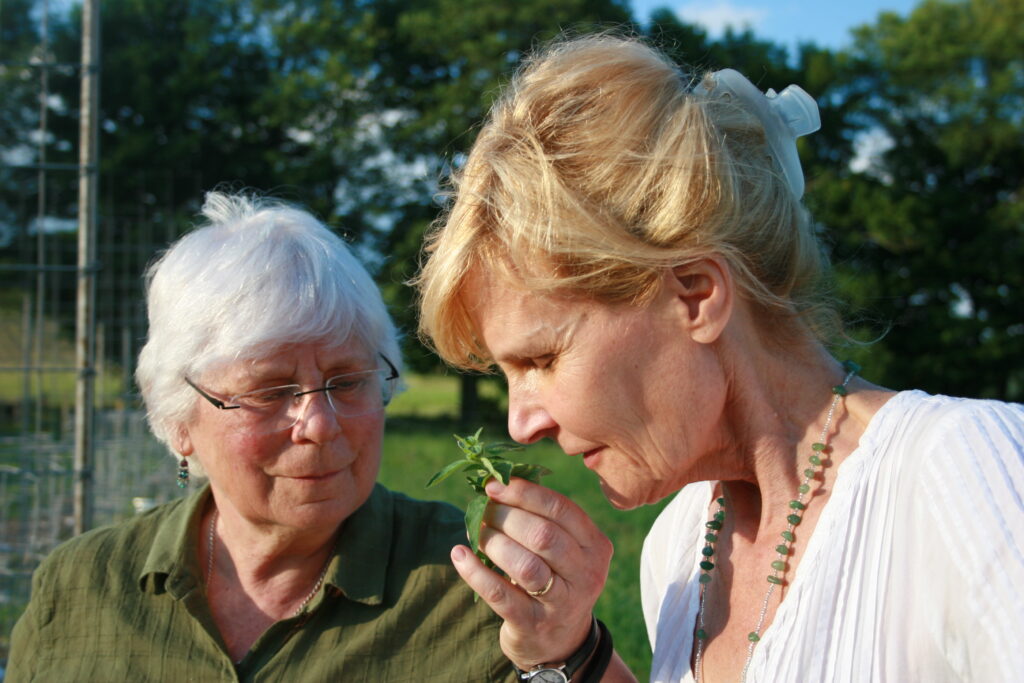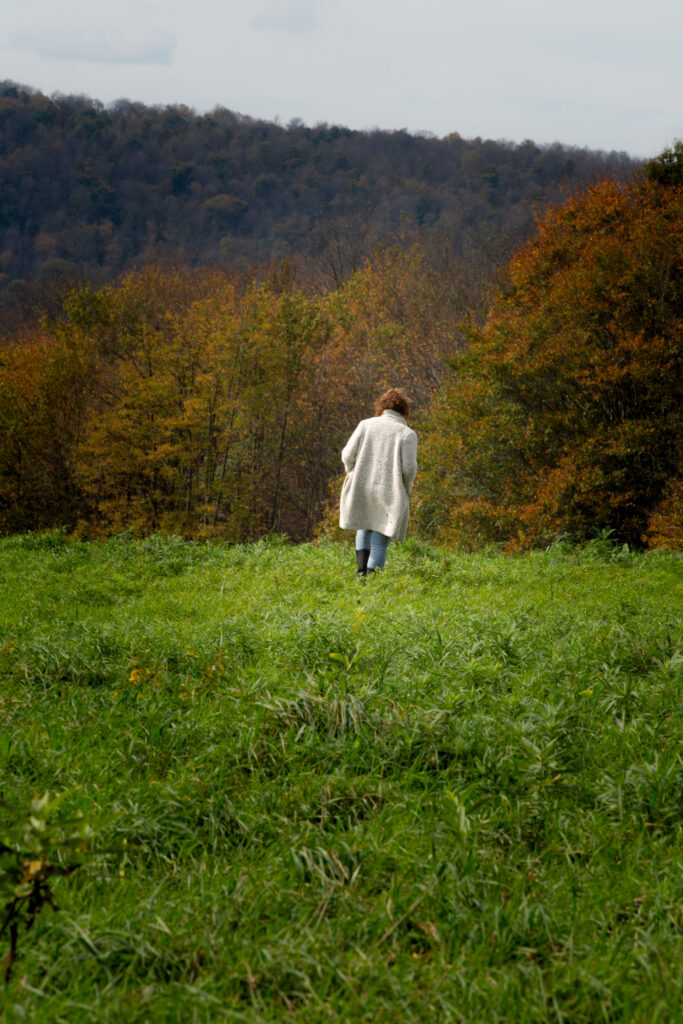Whether or not we are in times of subsuming hardship, stress is an inevitable part of life, given our culture’s overemphasis on productivity, efficiency, and perfectionism. While we do not have control over incoming stressors, we can control how we respond. Through learning and practicing various self-calming techniques, we can build a stock of resources that stands us in good stead when we are besieged. In this blog series from The Uplands, we are sharing our favorite ways to self-regulate in times of distress in order to find our peaceful center.
Mindfulness is a stress reduction tool that is surging in popularity. It has been adopted by schools, workplaces, and even the U.S. military in recent years. The practice of mindfulness has been around for over 2,500 years, and while its forms have varied over time, the intention has remained the same: to reduce suffering and to live as much as possible in a state of composure or equanimity. What is mindfulness exactly, why do we need it, and how does it help us reduce stress?

Our minds are, at times, far away from what we are actually doing. Stewing over the past and fretting over the future predominate, depriving us of being attuned to and present for the moment we are living. One Harvard study showed that almost half of our waking hours are taken up by thoughts that are unrelated to what is happening presently. This lack of present-moment awareness breeds restlessness, racing thoughts, irritability, and inability to focus.
Mindfulness is a way in which we can engage all of our senses in what we are doing, whether it’s taking a walk, talking with a friend, doing the dishes, gardening, or sitting quietly with our eyes closed. Whatever the experience, mindfulness involves paying attention to what is occurring in the mind, body, and space around oneself. It is, by definition, the quality in which one is fully aware of what is happening in the present moment. Rather than unwittingly being reactive to all that is happening, we can choose to observe it all – even our own thoughts – without judgement. When we are fully embodying mindfulness, we can acknowledge, accept and deeply feel the painful, joyful, difficult, and easeful moments. Our goal is not to avoid challenging experiences, but rather openly allow and understand what is in our present moment without resisting, analyzing, or ruminating. It is said that what we resist, persists. Mindfulness opens our inner channels to allow our life experiences to be felt and known and flow through, which then allows us to be available to the next moment.

Practicing mindful awareness can have significant impact on our stress levels. Mindfulness has been shown to improve mood, empathy, attention, memory, and pain tolerance. A recent study discovered that mindfulness-based stress reduction techniques have comparable efficacy to antidepressant medications in reducing depression. In another example, a free 8-week mindfulness program for healthcare workers was offered in response to the severe stress brought on by the COVID-19 pandemic, and it was shown to significantly reduce emotional exhaustion while increasing resilience.

How is it that mindfulness achieves these remarkable outcomes? First, mindfulness enhances awareness of our emotional state and levels of stress. When we can prevent being swept up into a spiral of negative thoughts, we can more readily shift out of an agitated state into one of more balance. Additionally, the simple practice of paying attention to them moment can itself be self-regulating, as it allows us to quiet our racing thoughts and their associated reactivity. Finally, mindfulness has a remarkable benefits on the physical make-up of our brains. After consistent practice, mindfulness practitioners have smaller amygdalae (the part of brain that is associated with threat and fear response) than the average human, and their prefrontal cortexes (associated with decision making and thoughtful response) are larger. People who engage in mindfulness also have an increase of grey matter in their hippocampus, which is associated with better emotional regulation and reduced stress.
Never tried mindfulness? Don’t be intimidated – it is not necessarily something “new” that we must learn. Rather, it’s a quality that we all possess and can tap into with consistent practice. Try any of these simple techniques to help cultivate mindfulness in your life:
- Focus on the breath: Sit or lay down comfortably with your eyes closed. Take a deep breath through the nose, and focus all of your attention on that inhale. Exhale through the mouth and feel your body relax. Keep breathing in and out slowly, noticing all of the feelings and sensations associated with the breath – inhale and feel the air filling up your lungs, your belly expanding, the air running past your nostrils, the gentle stretch of the spine… Exhale and feel the chest and belly fall, the body sinking deeper into earth, the muscles relaxing. When you notice your mind wander, simply bring your attention back to the breath and start again.
- Body scan: In any comfortable position, scan your body for areas of tension. Start at your toes and work your way up, consciously relaxing each part of the body. It may be helpful to envision a color that represents relaxation to you spreading through the body as you scan. Be sure to include your hands, chest, jaw, eyes, and forehead. After you complete your scan, take a few moments to rest and breathe.
- Mindful movement: As you walk, take extra care in noticing the placement of your feet. Feel the ground beneath you with every step and the propulsion that your body generates forward. Feel the air on your skin, the breath in your lungs, and the movement of your body through space. If you’d like, extend your awareness to the environment and tune into the sounds, sights, and movement around you.









